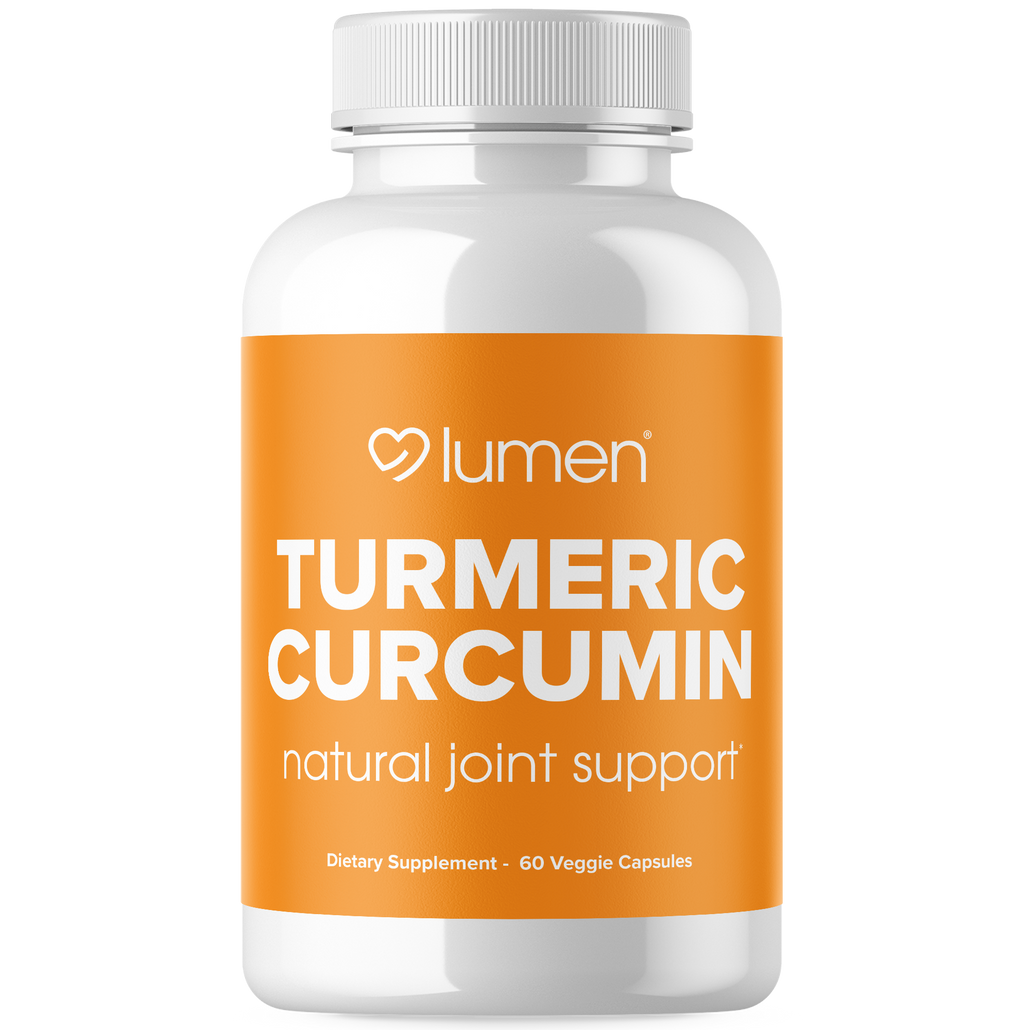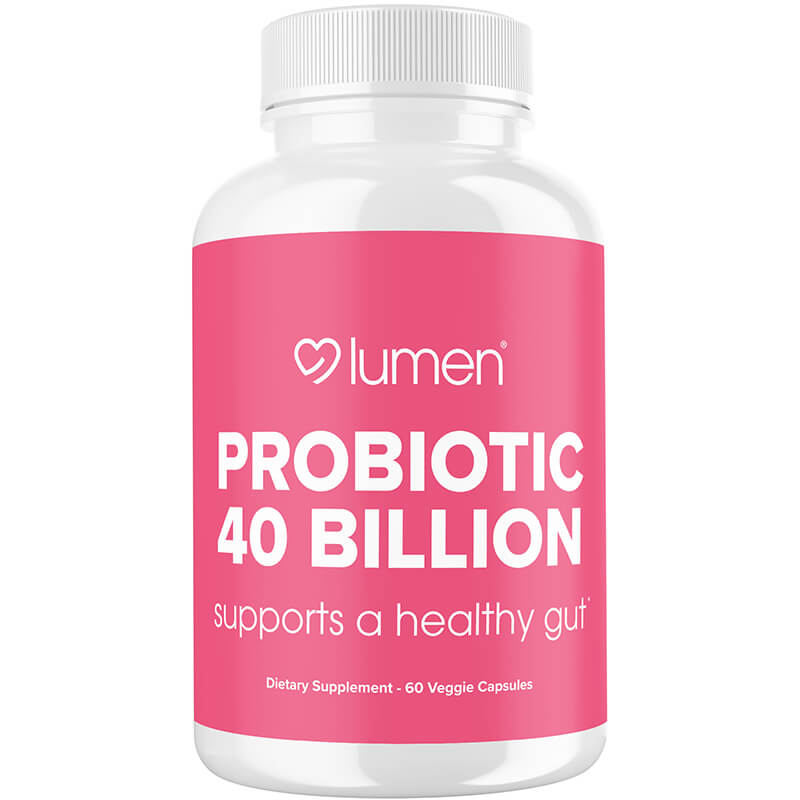Protect Your Vision with These Five Antioxidants
Including these vitamins and minerals in your diet can help boost eye health
Protect Your Vision with These Five Antioxidants
Including these vitamins and minerals in your diet can help boost eye health
Did you know that more than 3.3 million Americans aged 40 years and older are either legally blind or suffer from poor vision?
The Centers for Disease Control and Prevention note that age-related macular degeneration (AMD) and cataracts are two leading causes of vision problems in Americans.
Both AMD and cataracts are age-related conditions, and unfortunately, there's no anti-aging elixir available yet... However, with the right nutrients, many people can cut down the risks of these age-related eye conditions and improve eye health problems related to nutritional deficiencies.
Keep reading this article to learn how certain antioxidant vitamins and minerals can work to improve vision, including a discussion of the top five most popular vitamins and minerals for eye health, and what the science says about them.
Did you know that more than 3.3 million Americans aged 40 years and older are either legally blind or suffer from poor vision?
The Centers for Disease Control and Prevention note that age-related macular degeneration (AMD) and cataracts are two leading causes of vision problems in Americans.
Both AMD and cataracts are age-related conditions, and unfortunately, there's no anti-aging elixir available yet... However, with the right nutrients, many people can cut down the risks of these age-related eye conditions and improve eye health problems related to nutritional deficiencies.
Keep reading this article to learn how certain antioxidant vitamins and minerals can work to improve vision, including a discussion of the top five most popular vitamins and minerals for eye health, and what the science says about them.
1. Vitamin A
1. Vitamin A
Including Vitamin A in our list might be a bit redundant as it has traditionally been hailed as the best vitamin for eye health, but we couldn't leave it out.
Vitamin A is necessary for optimal eye health as it promotes healthy vision by helping produce of retinal pigments such as retinopsin. A deficiency can cause any of the following conditions:
- Night blindness
- Conjunctival xerosis
- Bitot's spots (patches of the dry conjunctiva)
- Corneal xerosis (dry cornea)
- Corneal ulcer
- Corneal scarring (scars caused due to an injury to the cornea)
Including Vitamin A in our list might be a bit redundant as it has traditionally been hailed as the best vitamin for eye health, but we couldn't leave it out.
Vitamin A is necessary for optimal eye health as it promotes healthy vision by helping produce of retinal pigments such as retinopsin. A deficiency can cause any of the following conditions:
- Night blindness
- Conjunctival xerosis
- Bitot's spots (patches of the dry conjunctiva)
- Corneal xerosis (dry cornea)
- Corneal ulcer
- Corneal scarring (scars caused due to an injury to the cornea)
2. Selenium
2. Selenium
We need selenium in very small amounts for proper metabolism throughout the body.
For the eyes, selenium acts an antioxidant and reduces oxidative stress in the corneal epithelium. A lack of selenium may cause cataracts.
We need selenium in very small amounts for proper metabolism throughout the body.
For the eyes, selenium acts an antioxidant and reduces oxidative stress in the corneal epithelium. A lack of selenium may cause cataracts.
3. Vitamin C
3. Vitamin C
As a powerful antioxidant, Vitamin C reduces oxidative stress and protects the eyes from common oxidants such as pollutants, UV light, and cigarette smoke.
Because the eyes have a high metabolic rate, they require an added layer of protection from oxidative stress. Most notably, Vitamin C also has a unique ability to regenerate the active form of vitamin E, which is another powerful antioxidant.
Our body cannot synthesize this vitamin and thus needs to obtain it from the diet. According to the National Health and Nutrition Examination Survey (NHANES), a significant portion of people aged 50 or above do not get enough Vitamin C. As such, the risk of eye disorders in this population is higher.
As a powerful antioxidant, Vitamin C reduces oxidative stress and protects the eyes from common oxidants such as pollutants, UV light, and cigarette smoke.
Because the eyes have a high metabolic rate, they require an added layer of protection from oxidative stress. Most notably, Vitamin C also has a unique ability to regenerate the active form of vitamin E, which is another powerful antioxidant.
Our body cannot synthesize this vitamin and thus needs to obtain it from the diet. According to the National Health and Nutrition Examination Survey (NHANES), a significant portion of people aged 50 or above do not get enough Vitamin C. As such, the risk of eye disorders in this population is higher.
4. Vitamin E
4. Vitamin E
Like Vitamin C, Vitamin E is also an antioxidant. The primary function of this fat-soluble vitamin is to protect fats, the essential components of all cell membranes, from attack by free radicals and reactive oxygen species.
Given that the fat content of retina is higher compared to other organs, it makes sense to include more of this vitamin in your diet to reduce the risk of fat degradation.
The benefits of Vitamin E relevant to vision include reductions in the activities of inflammatory cells and fatigue of the immune system. In fact, A recent study found that dietary, as well as supplementary vitamin E intake, was strongly linked with a decreased risk of age-related cataract (ARC).
Like Vitamin C, Vitamin E is also an antioxidant. The primary function of this fat-soluble vitamin is to protect fats, the essential components of all cell membranes, from attack by free radicals and reactive oxygen species.
Given that the fat content of retina is higher compared to other organs, it makes sense to include more of this vitamin in your diet to reduce the risk of fat degradation.
The benefits of Vitamin E relevant to vision include reductions in the activities of inflammatory cells and fatigue of the immune system. In fact, A recent study found that dietary, as well as supplementary vitamin E intake, was strongly linked with a decreased risk of age-related cataract (ARC).
5. Zinc
5. Zinc
Zinc is an essential trace mineral that plays a key role in several metabolic processes in the eyes.
In the eyes, zinc acts as an antioxidant and immune system promoter. A deficiency of zinc can make the eye membranes more susceptible to oxidative damages.
Zinc also promotes the production of an enzyme that mobilizes a form of Vitamin A from the liver. According to a 2001 study, a deficiency or suboptimal zinc status in Americans could potentially result in several chronic eye diseases such as age-related macular degeneration (AMD). Note that AMD can eventually cause vision loss in some people.
Zinc is an essential trace mineral that plays a key role in several metabolic processes in the eyes.
In the eyes, zinc acts as an antioxidant and immune system promoter. A deficiency of zinc can make the eye membranes more susceptible to oxidative damages.
Zinc also promotes the production of an enzyme that mobilizes a form of Vitamin A from the liver. According to a 2001 study, a deficiency or suboptimal zinc status in Americans could potentially result in several chronic eye diseases such as age-related macular degeneration (AMD). Note that AMD can eventually cause vision loss in some people.
What About Lutein and Zeaxanthin?
What About Lutein and Zeaxanthin?
Lutein and zeaxanthin are the only carotenoids present in the human body that are also found in the eyes.
Both these carotenoids are potent antioxidants and exhibit powerful protective activities against oxidative damage of the cells of the eyes. Moreover, they help protect the eyes from high-energy light that might strike the retina.
Looking for a Complete Vision Supplement that Contains Scientifically Proven Healthy Ingredients?
Consider taking Lumen Naturals Vision Support with lutein, zeaxanthin, and all five vitamins and minerals listed above.
This high-quality supplement also contains other natural vision health promoters like B vitamins, alpha-lipoic acid (ALA), lycopene, and others.
Together, these ingredients work to protect the eyes from oxidative damage and help maintain a healthy vision even as one ages.
Lutein and zeaxanthin are the only carotenoids present in the human body that are also found in the eyes.
Both these carotenoids are potent antioxidants and exhibit powerful protective activities against oxidative damage of the cells of the eyes. Moreover, they help protect the eyes from high-energy light that might strike the retina.
Looking for a Complete Vision Supplement that Contains Scientifically Proven Healthy Ingredients?
Consider taking Lumen Naturals Vision Support with lutein, zeaxanthin, and all five vitamins and minerals listed above.
This high-quality supplement also contains other natural vision health promoters like B vitamins, alpha-lipoic acid (ALA), lycopene, and others.
Together, these ingredients work to protect the eyes from oxidative damage and help maintain a healthy vision even as one ages.
Experience The Benefits Yourself
Visit Our Store Page to View All Our Products
References
1. Gilbert, C. (2013). The eye signs of vitamin A deficiency. Community eye health, 26(84), 66.
2. Higuchi, A., Inoue, H., Kawakita, T., Ogishima, T., & Tsubota, K. (2012). Selenium compound protects corneal epithelium against oxidative stress. PLoS One, 7(9), e45612.
3. Flohé, L. (2005). Selenium, selenoproteins and vision. In Nutrition and the Eye (Vol. 38, pp. 89-102). Karger Publishers.
4. Rasmussen, H. M., & Johnson, E. J. (2013). Nutrients for the aging eye. Clinical interventions in aging, 8, 741.
5. SanGiovanni, J. P., & Chew, E. Y. (2005). The role of omega-3 long-chain polyunsaturated fatty acids in health and disease of the retina. Progress in retinal and eye research, 24(1), 87-138.
6. Grahn, B. H., Paterson, P. G., Gottschall-Pass, K. T., & Zhang, Z. (2001). Zinc and the eye. Journal of the American College of Nutrition, 20(2), 106-118.
7. Roberts, R. L., Green, J., & Lewis, B. (2009). Lutein and zeaxanthin in eye and skin health. Clinics in Dermatology, 27(2), 195-201.
References
1. Gilbert, C. (2013). The eye signs of vitamin A deficiency. Community eye health, 26(84), 66.
2. Higuchi, A., Inoue, H., Kawakita, T., Ogishima, T., & Tsubota, K. (2012). Selenium compound protects corneal epithelium against oxidative stress. PLoS One, 7(9), e45612.
3. Flohé, L. (2005). Selenium, selenoproteins and vision. In Nutrition and the Eye (Vol. 38, pp. 89-102). Karger Publishers.
4. Rasmussen, H. M., & Johnson, E. J. (2013). Nutrients for the aging eye. Clinical interventions in aging, 8, 741.
5. SanGiovanni, J. P., & Chew, E. Y. (2005). The role of omega-3 long-chain polyunsaturated fatty acids in health and disease of the retina. Progress in retinal and eye research, 24(1), 87-138.
6. Grahn, B. H., Paterson, P. G., Gottschall-Pass, K. T., & Zhang, Z. (2001). Zinc and the eye. Journal of the American College of Nutrition, 20(2), 106-118.
7. Roberts, R. L., Green, J., & Lewis, B. (2009). Lutein and zeaxanthin in eye and skin health. Clinics in Dermatology, 27(2), 195-201.




